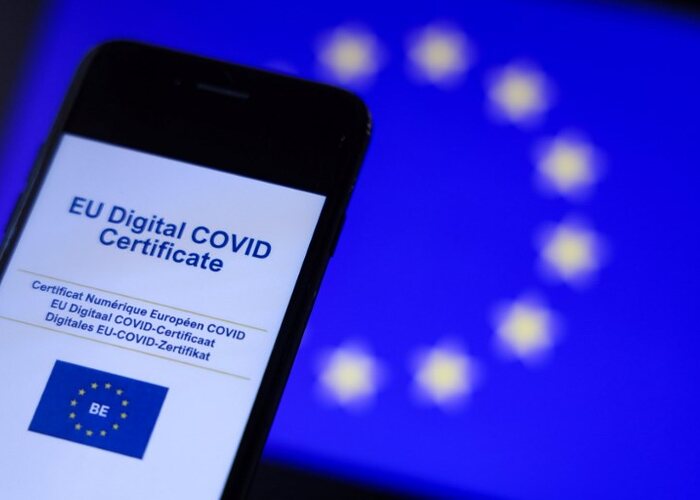Free travel within the EU will remain possible next year with the European Union's Digital Covid Certificate (DCC), however, a person must have a booster shot within nine months of receiving their last dose for their vaccination status to be eligible.
As an increasing number of EU countries are administering booster doses, member states' health ministers agreed during the EU's Health Council on Tuesday that a common approach was needed regarding the validity of the vaccination certificates in view of this additional dose so that the free movement of people within the bloc can continue to be guaranteed.
"The surge in infections, overstrained hospitals and now the detection of a possibly more infectious new variant require determined and coordinated action," said Janez Poklukar, Slovenian Minister of Health, who currently holds the chairmanship.
The European Commission previously proposed to update the rules for safe travel on 25 November so that the system could once again be streamlined, as various countries, including France, started announcing their own additional rules based on booster doses without an EU-wide agreement being in place.
It suggested a standard acceptance period of nine months for vaccination certificates following the administering of the last dose, "to avoid diverging and disruptive approaches." This would mean that EU countries cannot refuse vaccination certificates that still fall within this validity period.
Lack of unified system
The Dutch health minister Hugo de Jonge reflected on this upcoming decision on Twitter, saying it is important that the same rules apply across the entirety of the EU, adding the Dutch saying "samen uit, samen thuis," roughly translating "we started together, we will continue/finish together."
He added that it was important that travel for those with adequate vaccination should remain possible.
Related News
- Nearly all of Europe red or dark red on coronavirus travel map
- EU countries impose stricter measures, UK's Johnson refuses to play Scrooge
"People want to know whether they can go on holiday or not. This is becoming difficult with the existing coronavirus pass because more and more countries are deciding on additional rules on their own. This means there hasn't been an overarching health pass for a while now," said de Jonge, according to reports from De Morgen.
A decision on the exact period of validity and when this will be put into place is expected to be made by the end of this month.
The Commission's proposal stated the new system should be in place by the start of January 2022. Whether all EU member states will be able to speed up the administering of booster dose vaccines on time remains to be seen.
Additional measures
The certificate, which shows that a person has been fully vaccinated against the coronavirus, has a recent negative Covid-19 test, or recently recovered after infection, indicating immunity, came into force at the start of July this year and aimed to facilitate travel by exempting people with a travel pass from restrictions like quarantine and testing.
The system included steps for an “emergency brake” mechanism to be implemented, meaning countries can reintroduce restrictive measures, for example, if new variants of concern appear.
This has now been done by several European countries, including France, Norway, Switzerland and Ireland, in response to the Omicron variant, first detected in South Africa. They announced they would be imposing entry requirements such as a negative PCR test in addition to the DCC, or a booster dose starting from next year.
In line with the proposal for the system, a country should announce the new entry requirements to other member states, 48 hours in advance if possible.

